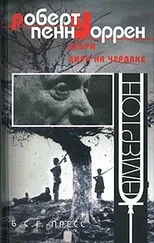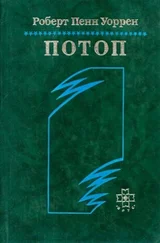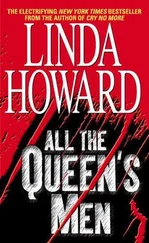Роберт Уоррен - All the king's men
Здесь есть возможность читать онлайн «Роберт Уоррен - All the king's men» весь текст электронной книги совершенно бесплатно (целиком полную версию без сокращений). В некоторых случаях можно слушать аудио, скачать через торрент в формате fb2 и присутствует краткое содержание. Жанр: Современная проза, на английском языке. Описание произведения, (предисловие) а так же отзывы посетителей доступны на портале библиотеки ЛибКат.
- Название:All the king's men
- Автор:
- Жанр:
- Год:неизвестен
- ISBN:нет данных
- Рейтинг книги:4 / 5. Голосов: 1
-
Избранное:Добавить в избранное
- Отзывы:
-
Ваша оценка:
- 80
- 1
- 2
- 3
- 4
- 5
All the king's men: краткое содержание, описание и аннотация
Предлагаем к чтению аннотацию, описание, краткое содержание или предисловие (зависит от того, что написал сам автор книги «All the king's men»). Если вы не нашли необходимую информацию о книге — напишите в комментариях, мы постараемся отыскать её.
All the king's men — читать онлайн бесплатно полную книгу (весь текст) целиком
Ниже представлен текст книги, разбитый по страницам. Система сохранения места последней прочитанной страницы, позволяет с удобством читать онлайн бесплатно книгу «All the king's men», без необходимости каждый раз заново искать на чём Вы остановились. Поставьте закладку, и сможете в любой момент перейти на страницу, на которой закончили чтение.
Интервал:
Закладка:
Going down the stairs, I decided that even id I had tried to wheedle the old man I would probably have learned nothing. It wasn't that I had gone at it wrong. It wasn't that I burst out about Governor Stark. What did he know or care about Governor Stark? It was that I had asked him about the world of the past, which he had walked away from. That world and all the world was foulness, he had said, and he was not going to touch it. He was not going to talk about it, and I couldn't have made him.
But I got one thing. I was sure that he had known something. Which meant that there was something to know. Well, I would know. Sooner or later. So I left the Scholarly Attorney and the world of the past and returned to the world of the present.
Which was: An oblong field where white lines mathematically gridded the turf which was arsenical green under the light from the great batteries of floodlamps fixed high on the parapet of the massive arena. Above the field the swollen palpitating tangle of light frayed and thinned out into hot darkness, but the thirty thousand pair of eyes hanging on the inner slopes of the arena did not look up into the dark but stared down into the pit of light, where men in red silky-glittering shorts and gold helmets and spilled and tumbled on the bright arsenical-green turf like spilled dolls, and a whistle sliced chillingly through the thick air like that scimitar through a sofa cushion.
Which was: The band blaring, the roaring like the sea, the screams like agony, the silence, then one woman-scream, silver and soprano, spangling the silence like the cry of a lost soul, and the roar again so that the hot air seemed to heave. For out of the shock and tangle and glitter on the green a red fragment had exploded outward flung off from the mass tangentially to spin across the green, turn and wheel and race, yet slow in the out-of-timeness of the moment, under the awful responsibility of the roar.
Which was: A man pounding me on the back and screaming–a man with a heavy face and coarse dark hair hanging over his forehead–screaming, "That's my boy! That's Tom–Tom–Tom! That's him–and he's won–they won't have time for a touchdown now–he's won–his first varsity game and it's Tom won–it's my boy!" And the man pounded me on the back and grappled me to him with both arms, powerful arms, and hugged me like his brother, his true love, his son, while tears came into his eyes and tears and sweat ran down the heavy cheeks, and he screamed, "He's my boy–and there's not any like him–he'll be All American–boy, did you see him–fast–fast–he's a fast son-of-a-bitch! Ain't he, ain't he?"
"Yes," I said, and it was true.
He was fast and he was a son-of-a-bitch. At least, if he wasn't a son-of-a-bitch yet, he had shown some very convincing talent in that line. You couldn't much blame Lucy for wanting to stop the football–his name always on the sporting page–the pictures–the Freshman Whiz–the Sophomore Thunderbolt–the cheers–the big fat hands always slapping his shoulder–Tiny Duffy's hand on his shoulder–yeah, Boss, he's a chip off of the old block–the roadhouses–the thin-legged, tight-breasted little girls squealing, Oh Tom, oh, Tom–the bottles and the tourist cabins–the sea-roar of the crowd and always the single woman-scream spangling the sudden silence like damnation.
But Lucy did not have a chance. For he was going to be All American. All American quarterback on anybody's team. If bottle and bed didn't manage to slow down too soon something inside that one hundred and eighty pounds of split-second, hair-trigger, Swiss-watch beautiful mechanism which was Tom Stark, the Boss's boy, the Sophomore Thunderbolt, Daddy's Darling, who stood that night in the middle of a hotel room, with apiece of court plaster across his nose and a cocky grin on his fine, clean, boyish face–for it was fine and clean and boyish–while all the hands of Papa's pals pawed at him and beat his shoulders, while Tiny Duffy slapped him on the shoulder, and Sadie Burke, who sat a little outside the general excitement on her own private fog of cigarette smoke and whisky fumes, a not entirely unambiguous expression on her riddled, handsome face, said, "Yeah, Tom, somebody was telling me you played a football game tonight."
But her irony was not the sort of thing Tom Stark would hear or understand, for he stood there in the midst of his own gleaming golden private fog of just being Tom Stark, who had played in a football game.
Until the Boss said, "Now you go on and get to bed, Son. Get your sleep, Son. Get ready to pour it on 'em next Saturday." And he laid his arm across the boy's shoulder, and said, "We're all mighty proud of you, boy."
And I said to myself: _If he gets his eyes starry with tears again I am going to puke.__
"Go on to bed, Son," the Boss said.
And Tom Stark said, "Sure," almost out of the side of his mouth, and went out the door.
And I stood there in what was the present.
But there was the past. There was the question. There was the dead kitty buried in the ash heap.
So I stood, later, in the embrasure of as big bay window and looked out as the last light ceased to gleam from the metallic leaves of magnolias and the creamy wash of the sea beyond dulled in the thickened dusk. Behind me was a room not very different from that other long white room giving on the sea–where now, at this moment perhaps, my mother would be lifting to the taffy-haired Young Executive that face which was still like a damned expensive present and which he had damned well better admire. But in the room behind me, scarcely lighted by the stub of a candle on the mounted shelf, the furniture was shrouded in white cloth, and the grandfather's clock in the corner was as severely mute as grandfather. But I knew that when I turned around there would also be, in the midst of the sepulchral sheetings and the out-of-time silence, a woman kneeling before the cols blackness of the wide fireplace to put pine cones and bits of light-wood beneath the logs there. She had said, "No, let me do it. It's my house, you know, and I ought to light the fire when I come back like this. You know, a ritual. I went to. Adam always lets me do it. When we come back."
For the woman was Anne Stanton, and this was the house of Governor Stanton, whose face, marmoreal and unperturbed and high, above black square beard and black frock coat, gazed down in the candlelight from the massy gold frame above the fireplace, where his daughter crouched, as though at his feet, rasping a match to light a fire there. Well, I had been in this room when the Governor had not been the marmoreal brow in the massy gold frame but a tall man sitting with his feet on the hearthrug with a little girl, a child, on a hassock at his feet, leaning her head against his knee and gazing into the fire while his large man hand toyed deliciously with the loose, silken hair. But I was here now because Anne Stanton, no longer a little girl, had said, "Come on out to the Landing, we're just going back for Saturday night and Sunday, just to build a fire and eat something out of a can and sleep under the roof again. It's all the time Adam can spare. And he can't spare that much often now." So I had come, carrying my question.
I heard the match rasp, and turned from the sea, which was dark now. The flame had caught the fat of the light-wood and was leaping up and spewing little stars like Christmas sparklers, and the light danced warmly on Anne Stanton's leaning face and then on her throat and cheek as, still crouching, she looked up at me when I approached the hearth. Her eyes were glittering like the eyes of a child when you give a nice surprise, and she laughed in a sudden throaty, tingling way. It is a way a woman laughs for happiness. They never laugh that way just when they are being polite or at a joke. A woman only laughs that way a few times in her life. A woman only laughs that way when something has touched her way down in the very quick of her being and the happiness just wells out as natural as breath and the first jonquils and mountain brooks. When a woman laughs that way it always does something to you. It does not matter what kind of a face she has got either. You hear that laugh and feel that you have grasped a clean and beautiful truth. You feel that way because that laugh is a revelation. It is a great impersonal sincerity. It is a spray of dewy blossom from the great central stalk of All Being, and the woman's name and address hasn't got a damn thing to do with it. Therefore, that laugh cannot be faked. If a woman could learn to fake it she would make Nell Gwyn and Pompadour look like a couple of Campfire Girls wearing bifocals and ground-gripper shoes and with hands on their teeth. She could set all society by the ears. For all any man really wants is to hear a woman laugh like that.
Читать дальшеИнтервал:
Закладка:
Похожие книги на «All the king's men»
Представляем Вашему вниманию похожие книги на «All the king's men» списком для выбора. Мы отобрали схожую по названию и смыслу литературу в надежде предоставить читателям больше вариантов отыскать новые, интересные, ещё непрочитанные произведения.
Обсуждение, отзывы о книге «All the king's men» и просто собственные мнения читателей. Оставьте ваши комментарии, напишите, что Вы думаете о произведении, его смысле или главных героях. Укажите что конкретно понравилось, а что нет, и почему Вы так считаете.





![Роберт Уоррен - Рассказы [Компиляция]](/books/419993/robert-uorren-rasskazy-kompilyaciya-thumb.webp)


